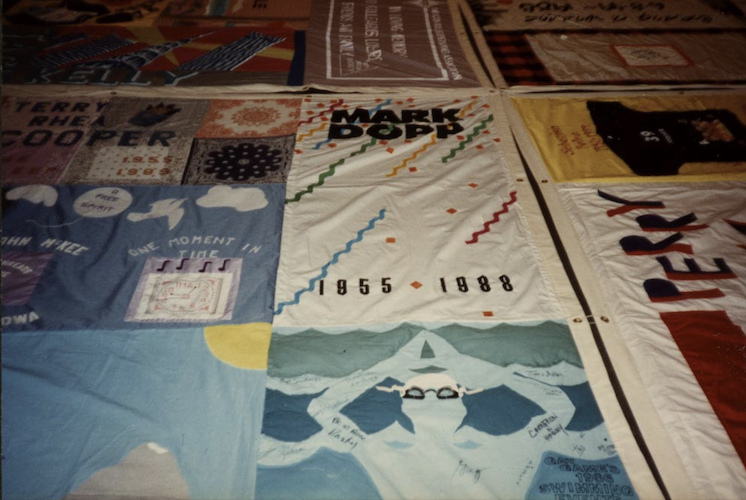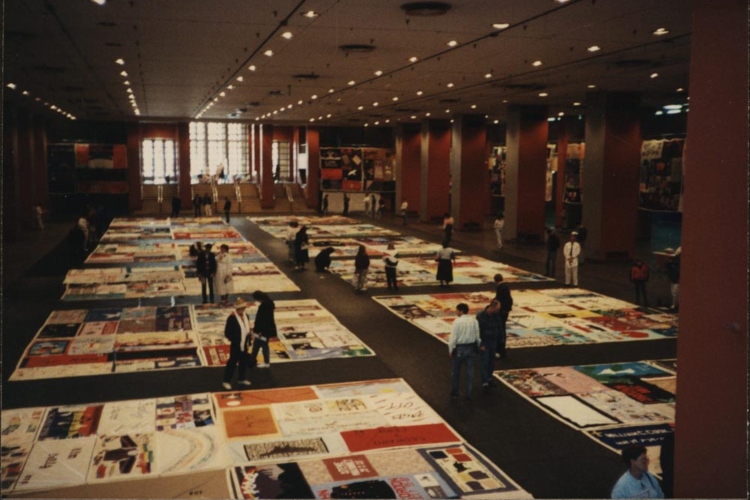UMKC professor’s gift increases collection security, longevity
When Linda E. Mitchell, Ph.D., professor of history and the Martha Jane Phillips Starr Missouri Distinguished Endowed Professor of Women’s and Gender Studies at UMKC, began to think about estate planning, she decided to create an endowment fund for the Gay and Lesbian Archives of Mid-America (GLAMA.)
Mitchell’s academic career has focused on women’s, gender and sexuality studies, mostly in reference to the history of women and families in the Middle Ages. The combination of her research in medieval studies and gender and sexuality revealed that historically, gender has never been seen as simply a binary, despite what some people may think.
“This is what happens when you study history,” she says. “Situations were often more complicated than people try to make them.”
Because of her mentoring of students in history and women’s, gender and sexuality studies, Mitchell was familiar with GLAMA’s mission to collect, preserve and make accessible materials that are part of the lesbian, gay, bisexual and transgender (LGBT) communities’ history in the Kansas City region. GLAMA is housed in the LaBudde Special Collections at the Miller Nichols Library, and Mitchell has worked closely with Stuart Hinds, curator of special collections, on developing research projects for students in the archival collections housed at La Budde, including those that form part of GLAMA.
In addition to her professional interest, Mitchell’s connection to the collection is personal.
“My brother and his husband are two of the most important people in my life,” Mitchell says. “As I began making plans for my estate, I wanted to support GLAMA in their honor. I contacted Stuart to see if the archives had an endowed fund.”

Hinds confirmed that GLAMA did not have an endowment, and Mitchell decided to create the Bill Mitchell and Jeff Halpern Endowment for GLAMA.
“I felt that establishing this endowment was tremendously important,” Mitchell says. “We are seeing even now attempts to erase and denigrate the history of underrepresented groups—such as women and people who do not identify themselves in binary-gendered ways—and this fund can provide some security for the collection.”
Hinds recognizes the importance in compiling the documentation of the LGBTQIA community in Kansas City that reflects a history that was previously left out of the traditional local historical narrative.
“The value inside the community really centers around preservation,” Hinds says. These stories, photographs and materials are preserved, and they’re given a long-term home so they don’t disappear. Over the years many donors have told me that one of the reasons they were interested in donating is because they were concerned that their family might not see the value in these memorabilia and throw it away.”
“Kansas City is lucky to have GLAMA. The archives improve the national perception of the city.”
While the loss of personal stories is concerning, the significance of preservation is inclusion on a broader scale.
“We’re really at a moment where we’re trying to incorporate a much wider variety of stories in the American historical narrative, some of which aren’t very pleasant,” Hinds says. “It’s the job of these kinds of archives to broaden that inclusion so historians can accomplish the work that they are trying to achieve.”
“Kansas City is lucky to have GLAMA,” Mitchell says. “The archives improve the national perception of the city. It’s not only barbecue and football. We live in one of the most culturally rich and complex cities in the country. GLAMA is a great component of that diversity.”

